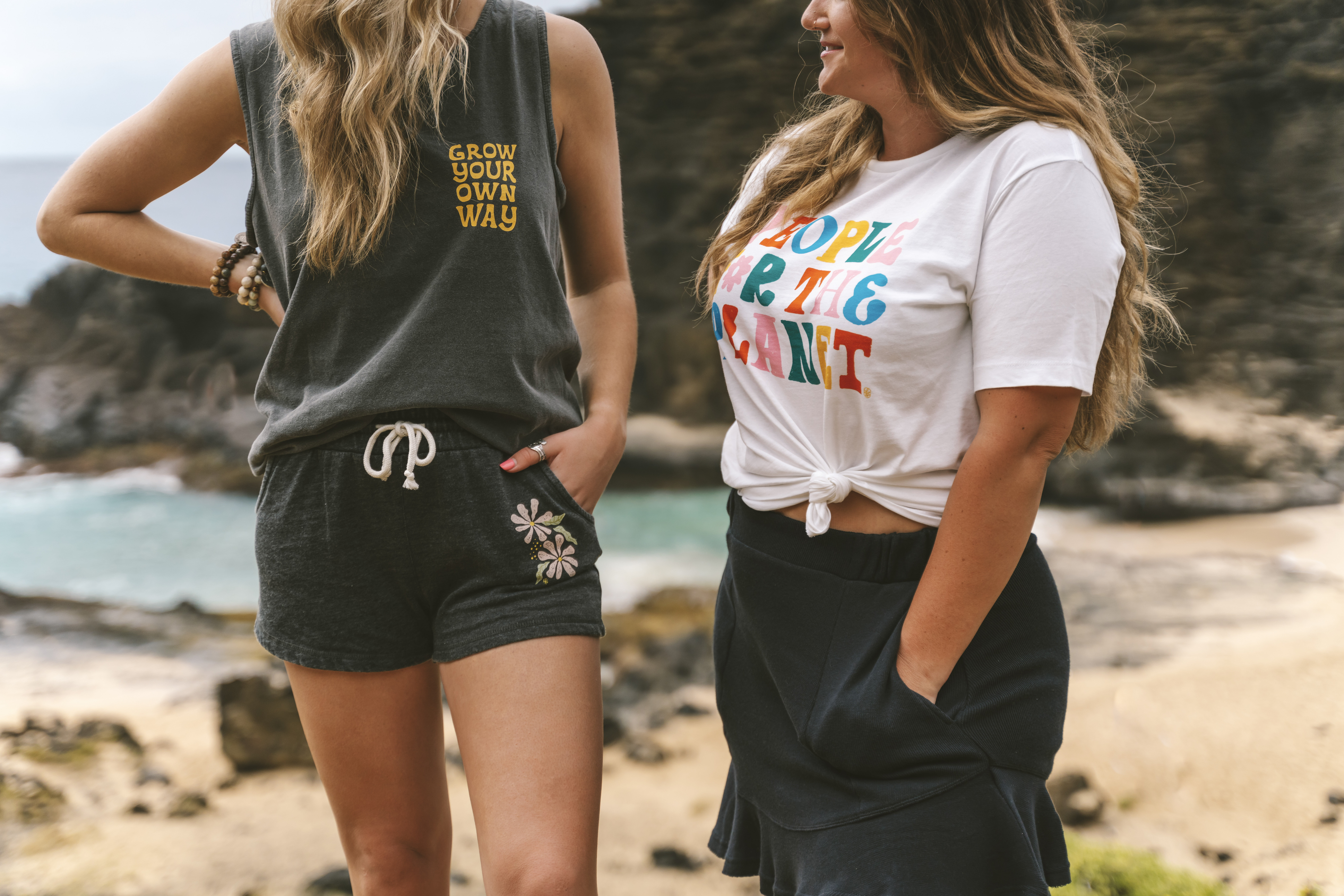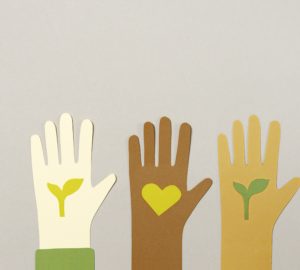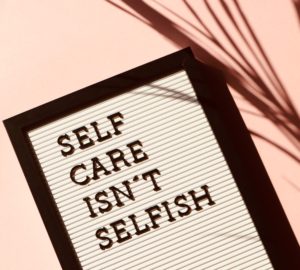7 Books that will change the way you look at the connection between mental health and the environment
264 million people. That’s how many people are suffering from depression, according to the World Health Organization. And the National Institute of Mental Health reports about 31% of U.S. adults experience any anxiety disorder at some time in their lives. Needless to say, there is an invaluable need for mental health advocates and resources. While books may not be able to answer all of our mental health questions, they do offer powerful tools and lessons in empathy to help us navigate our own journeys.
So if you (like us) turn to books as friends in this uncertain world — here’s a roundup of seven mental health books drawing powerful connections between how we look at the world and our well-being. Whether you’re looking for a memoir about the healing powers of nature or a practical guide for how to handle eco-anxiety, there’s something for you.And if you’re feeling anxious or depressed, we highly recommend reaching out to a trusted friend and/or medical professional. You are not alone.
PS, all links will direct you to Bookshop, an online bookstore with a mission to financially support local, independent bookstores.
(And here’s a glimpse at how some of our Wholesome team members are dealing with feelings of eco-anxiety.)
7 Books that will change the way you look at the connection between mental health and the environment
1. A Field Guide to Climate Anxiety
Favorite passage: “As a matter of survival we need to think beyond eco-apocalypse and nurture our visions for a post-fossil fuel future. Our radical imaginations will also make visible all the good things that are being done, allow us each to see ourselves as a crucial part of the collective movement, and replace the story of a climate-changed future as a frightening battle for ever scarcer resources with one that highlights personal abundance…”
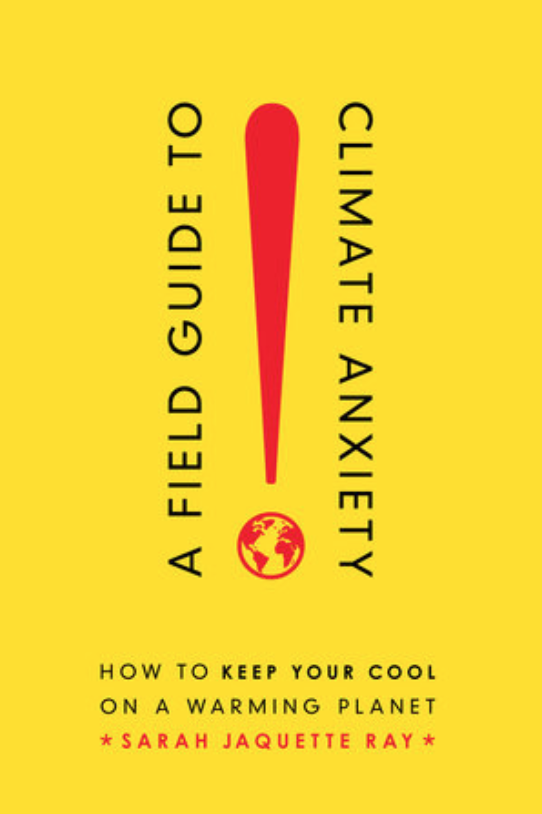
Studies show about 70% of people in the U.S. are worried about climate change, and about 50% feel “helpless. If you feel like you’re part of this 50%, we highly recommend this book by Sarah Jaquette Ray. Ray brings her years of teaching environmental studies to the page in this empowering read that’s a combination of psychology, sociology, and mindfulness Overall message: let go of eco-guilt and shift energy into advocating for climate justice.
Buy the book: here.
2. The Wild Remedy
Favorite passage: “This year of using nature as a remedy has convinced me that humans may need to be in natural landscapes regularly in order to be fully well. There is an ancient and potent connection between us and the land: we evolved to live in wild places. Perhaps it is the displacement from nature in modern life that is causing so many of us to struggle with our mental health.”
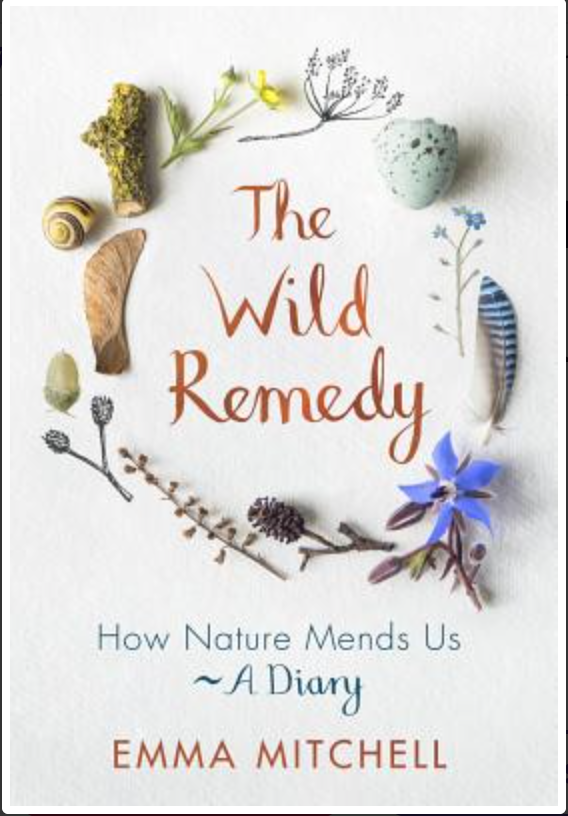
As Emma Mitchell recounts her travels around her cottage and neighborhood, she shows how reconnecting with nature can truly change the way we connect with our bodies and minds. Filled with drawings, paintings, and photography, this book opens up a world full of wonder and beauty.
Buy the book: here.
3. Blue Mind
Favorite passage: “We are inspired by water — hearing it, smelling it in the air, playing in it, walking next to it, painting it, surfing, swimming or fishing in it, writing about it, photographing it, and creating lasting memories along its edge.”
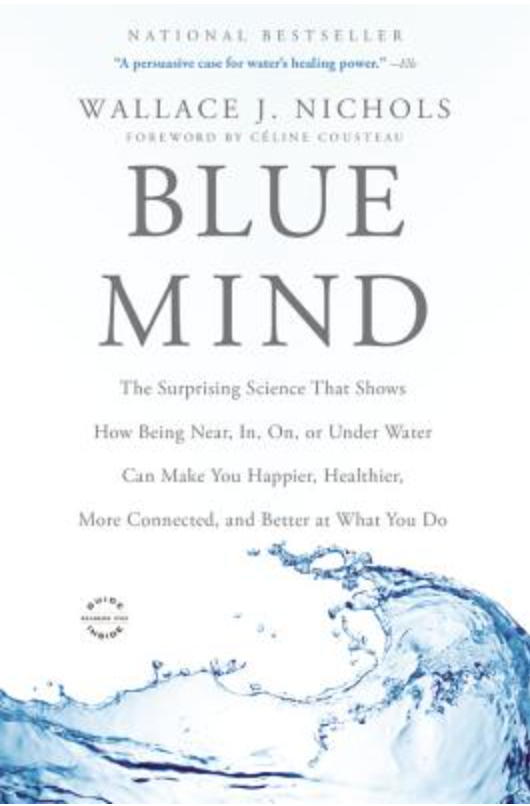
Blue Mind is not a book about eco-anxiety and climate change, but more about the ways the environment can boost our mental health and overall well-being. Wallace J. Nichols combines anecdotes with neuroscience to show how water can not only improve performance and reduce anxiety but also increase calmness and professional success. One thing is for sure: after reading this you’ll want to go to a body of water and feel urged to clean our seas.
Buy the book: here.
4. A Guide to Eco-Anxiety: How to Protect the Planet and Your Mental Health
Favorite passage: “Don’t let environmentalism frighten you into a lacklustre existence. A responsible life can still be utterly brilliant.”
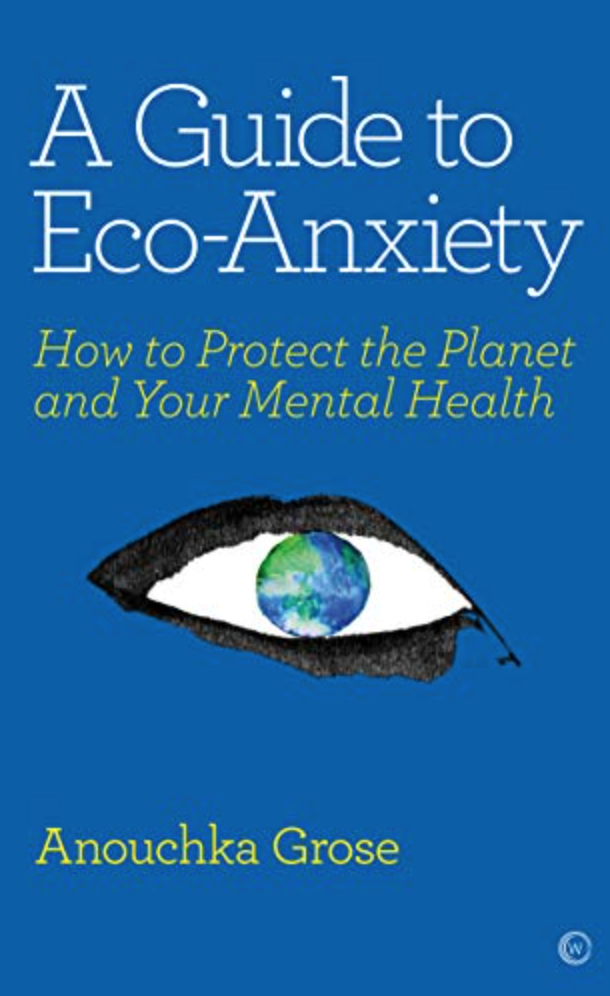
Written by a psychoanalyst, Anouchka Grose, If his book offers emotional tools and strategies to ease anxiety by taking action on a personal and community level. It’s informative, but not intimidating. And it’s hopeful… without being irritatingly optimistic. It’s also packed with practical strategies to take action in a way that does not require a complete life overhaul.
Buy the book: here.
5. Emotional Resiliency in the Era of Climate Change
Favorite passage: “If we can recognize the vital connection between our thoughts, emotions, and behavior in our moment-to-moment choices, the damaging costs to people and the environment can be eliminated. This shift empowers a new way of seeing that can guide us to develop a conscious and responsible relationship to the whole, of which we are but a part.”
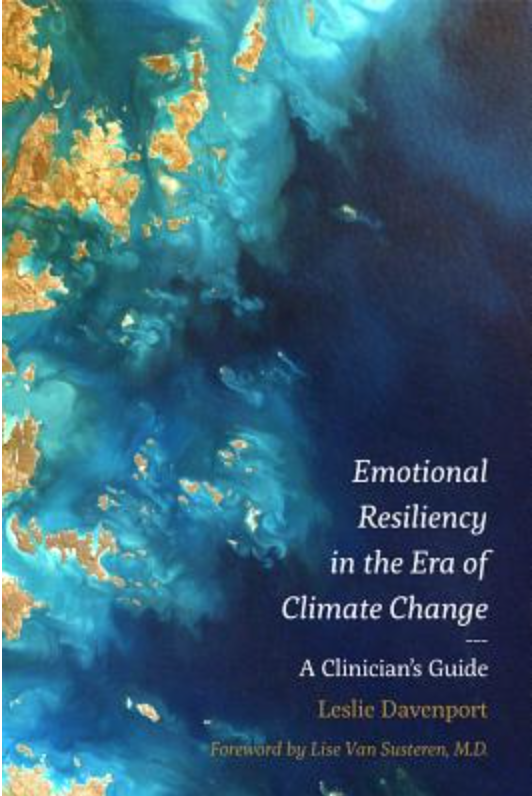
While this book is technically a clinician’s guide, it’s a useful read for anyone looking for specific strategies to cope with climate anxiety. Leslie Davenport draws distinctions between compassion and empathy, and how attitude and behavior are intricately connected to climate grief.
Buy the book: here.
6. Hope Matters: Why Changing the Way We Think Is Critical to Solving the Environmental Crisis
Favorite passage: “Fear, guilt, and shame are powerful levers in political movements. However, fear tactics are a double-edged sword. On an individual level, fear is a good indicator that something is broken or has gone wrong. But, when it becomes entrenched, as it has in the doom-and-gloom narrative, it is demotivating.”
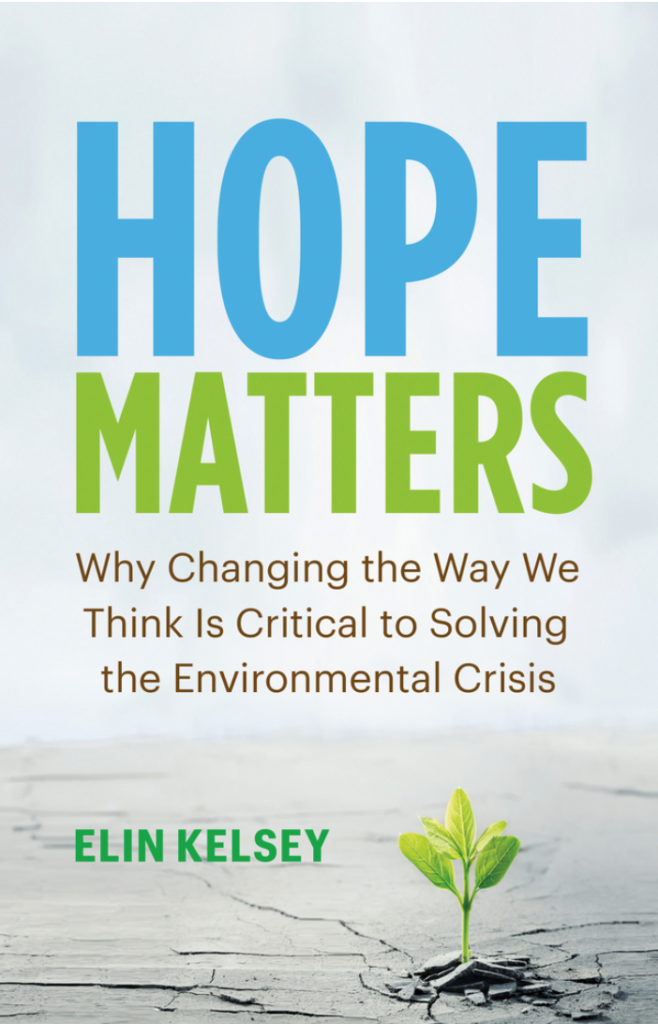
Hope Matters is for anyone who feels overwhelmed by climate news (aka, pretty much everyone!). Through real-life examples of positive climate news and the power of individual and collective action, Elin Kelsey shows how we can work toward a sustainable future.
Buy the book: here.
7. Bird Therapy
Favorite passage: “Birds and nature are my anchor to the present.”
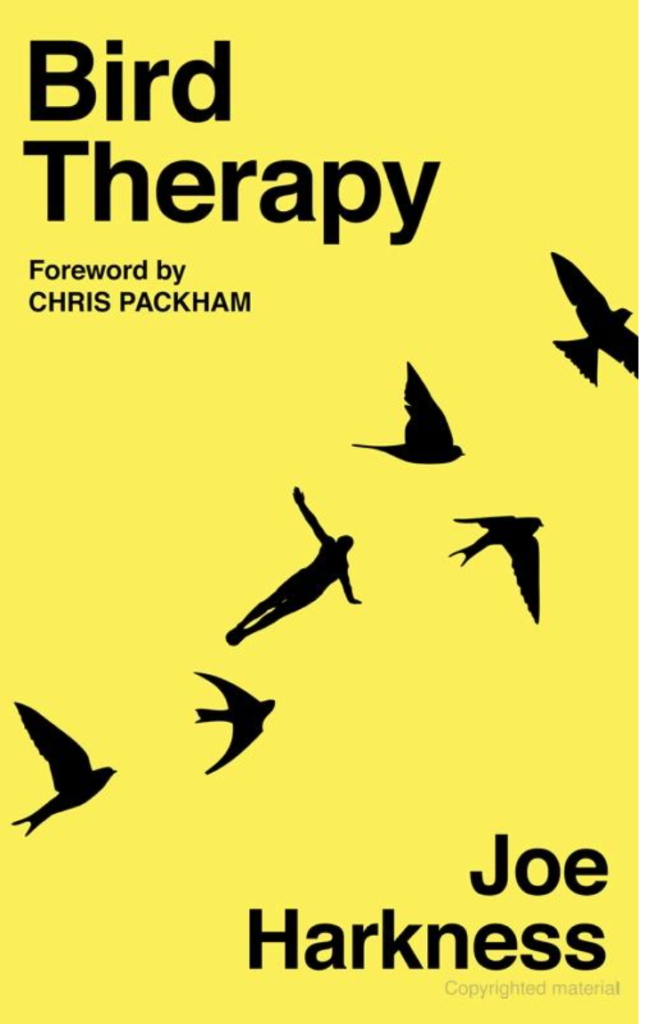
After suffering from a breakdown in 2013, Joe Harkness discovers the power of nature, specifically bird watching. In his book, Harkness shares his profound connection to birdwatching and offers advice to help readers cultivate more mindfulness.
Buy the book: here.

